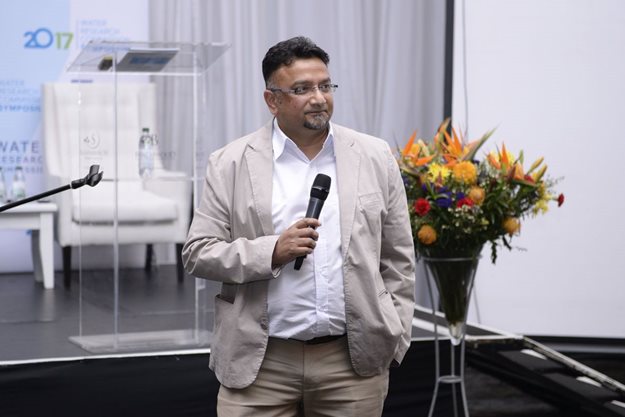






This is not the solution towards eliminating this virus. Behaviour change needs to be permanent till it's safe. The same applies to water. When water is plentiful and flowing, water use behaviour is poor. During restrictions, behaviours change, but revert back to normal immediately when the system improves. For a water-stressed country like South Africa, our use is way beyond international norms of 170l/cap/day, where our consumption averages between 235l/cap/day to in places up to 500l/cap/day.
South Africa is a water-stressed country receiving on average less than 800mm rainfall per annum (a water healthy country is deemed to have above 1200mm rainfall per annum), which is further compounded by inequitable distribution of rainfall and evaporation. Most of our water falls on the eastern coastline and the highest evaporation is in the north-western regions where the evaporation can be higher than the amount of rainfall.
South Africa has exploited more than 90% of all its surface runoff to meet the demands of society, economy and food security. The predictions are that by 2030, our demand for water will outstrip what is available if we continue on the same pathway. As users, we remain oblivious to this reality and the years of segregation have created expectations that water is plentiful, and this expectation has been carried into the new democracy.
However, today we are living in an environment of the growing challenges of water scarcity, with demand outstripping supply in many areas, high user expectations and assurances, alleviated by climate variability which requires interventions. Ensuring our long-term water supply will require the use of both drastic supply-sided approaches, such as water augmentation through water harvesting, reuse and recycling, as well as demand-sided approaches, such as water conservation as seen in the Cape Town drought.
In an environment of high expectations and promises, the conservation and wise use of our water resources will therefore become increasingly imperative and should evolve into a national culture. If not, then we will suffer the same Covid syndrome. We will require significant shifts in a permanent behaviour change on how we use and value water.
Behaviour change typically focuses on changing long-term behaviours, applies behavioural theory and requires rigorous measurement of outcomes and impact. Much like commercial marketing, behaviour change is about motivating the users, removing barriers to taking action and understanding the emotional triggers that prompt change. The key difference between traditional product marketing and social marketing (the approach most frequently used in behaviour change campaigns) is the aim to benefit society.
Internationally, it has been show that behavioural interventions are more effective when implemented by local governments in developing countries, where there are technology and resource constraints. Tackling simple issues, such as social norms, is key for inducing change through raising awareness about how much water an individual consumes, and comparing this consumption level with peers can go a long way in helping change individuals’ behaviour regarding the use of a finite resource, such as water, and contributes to positive attitudes toward water conservation.
However, it is known that attitudes do not necessarily translate into actual behaviour. Over the past decade, utilities, governments, businesses, and non-profits have come to realise that more than just financial considerations and information drive behaviour. Social and psychological factors also play a significant role in shaping consumers’ decisions and behaviours around resource use. Stakeholders have consequently turned their interest to behavioural science, a multidisciplinary field that draws from psychology, sociology, public health, and behavioural economics to explain the complex mechanisms that shape human behaviour. When used strategically, behavioural science holds the potential to drive down resource use, drive up profits, and generate measurable gains in conservation and efficiency.
Thus, behaviour change offers and provides one of the key opportunities and sustainable interventions which can contribute to the acknowledgement and management of the water resources, the exploitation and its efficient use by households, agriculture, mining, industry, and the environment. As South Africa, learning from the pandemic, we must make behaviour change in water use a national priority, as well as a strategic intervention of equal importance in the National Water Master Plan. This will help forge a new generation to adapt and be more resilient to the challenges of future water scarcity.
This should be the message of National Water Week and the next few decades for all South Africans. The WRC, which turns 50 years this year, has been contributing to this behaviour through its valuable research and knowledge platform. A jewel to the nation must be further forged to serve South Africa into the future.